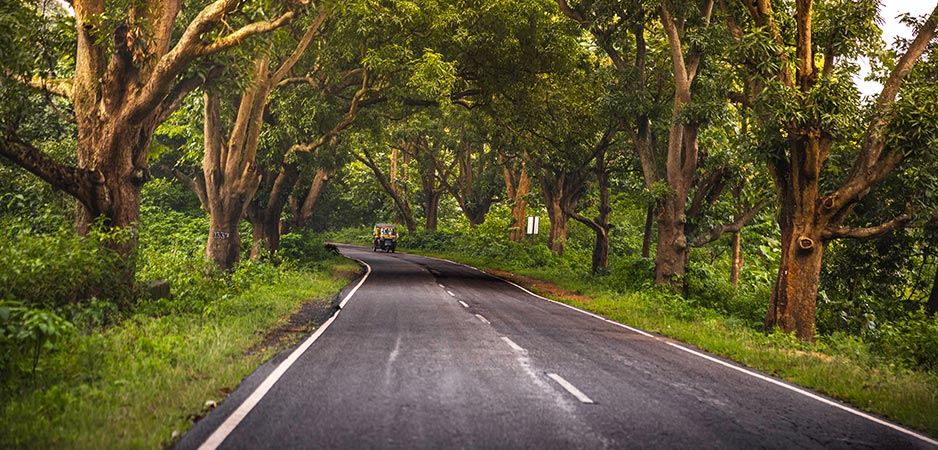On the night of July 11, Naxalites blew up 12 buildings in the forest department’s field office-cum-quarters in the Berkela forest area of Pashchimi Singhbhum district in Jharkhand, India. Naxalites are Maoists who have fought a bloody insurgency against the Indian state in some rural and forest areas for over six decades. In 2006, Manmohan Singh, the prime minister at the time, called this insurgency “the single biggest internal-security challenge” the country has ever faced.
360° Context: The State of the Indian Republic
In recent years, the Naxalite insurgency has ebbed. So, this attack sent shock waves across administration in general and the forest department in particular. Fortunately, no one died in the attack. The Naxals asked staff to vacate the premises and warned of consequences if police were informed before destruction. Even as the police swung into action to apprehend the attackers, forest officials huddled together for introspection.
Forests, Minerals and Indigenous People
I have served in the jungles of Jharkhand as a forestry professional. The attack has made me reflect deeply. Naxalite attacks in Jharkhand are not new. For years, Naxals have intimidated state functionaries through various means, including attacks and assassinations. To understand the persisting nature of the Naxalite insurgency, we have to examine Jharkhand closely.
Jharkhand is a state that lies to the south of Bihar and the west of Bengal, two fertile Gangetic states of India. To its southeast and southwest, it borders two other poor but resource-rich states of Chhattisgarh and Odisha. Jharkhand literally means “bushland.” It is endowed with rich natural resources, including both forests and minerals such as coal, iron, copper, mica and uranium.
Jharkhand is predominantly inhabited by diverse indigenous communities. The Indian Constitution gives these communities a “scheduled tribes” status. As per the 2011 census, they comprise 8.2% of India’s population. In contrast, scheduled tribes form a much higher 26.3% of the population in Jharkhand. Historically, Jharkhand was a part of Bihar and the people of Jharkhand felt neglected and marginalized. Therefore, they agitated for a separate state both to safeguard their identity and to achieve control over their rich resources of “jal, jungle aur jameen,” Hindi for water, forests and land.
On November 15, 2000, Jharkhand was formed. I remember the date fondly. A grand function was held in Ranchi’s Raj Bhawan, the governor’s house. I was still what is called a “probationer” in government parlance. As an officer of the Indian Forest Service (IFS), I was doing my training at the Shri Krishna Institute Public Administration just across the road from the Raj Bhawan. Many officers were visiting from Patna and staying at the institute’s guest house. They were also milling around the resplendent surroundings of the Raj Bhawan.
The staff of the guest house who belonged to the scheduled tribes were in a jubilant mood. I asked one of them, a gentleman named Khalkho, as to what the formation of Jharkhand meant for him. His instant response, “abua dishum, abua raj,” which translates as “our state, our rule,” still rings in my ears. Khalkho also went on to inform me that henceforth it would be his children, not dikus, the local term for outsiders, who would get preference in jobs.
Despite two decades of abua raj in abua dishum, all is clearly not well in Jharkhand. Berkela is barely 15 kilometers from Chaibasa, the district headquarters of Pashchimi Singhbhum. Scheduled tribes form 67.3% of the population in the district, and the region is rich both in mineral and forest resources. Forest cover forms about 47% of the area, making the district rich in biodiversity. The famous Saranda forest, known for excellent Sal trees and its natural regeneration, is also located here. Much of the Jharkhand’s mineral wealth, especially iron ore, is found under these forests.
These rich resources have not improved the living standards of scheduled tribes of the area. Instead, the forests have become home to the Naxals who take refuge there. Various development agencies have shied away from this area. Only the forest department dares to venture there to fulfill its duty to protect and conserve Pashchimi Singhbum’s forests for posterity. The Naxal attack will certainly sap the department’s morale.
To combat Naxalism, the forest department has to connect with local communities. Addressing their livelihood issues is essential for winning the trust of marginalized people in a resource-rich land. Only winning goodwill in Pashchimi Singhbhum and elsewhere would help combat the Naxal menace.
Yet there is a problem. First, the mandate of the forest department is mainly the protection, conservation and development of forests, not providing livelihood or improving living standards for local communities. Second, the department lacks adequate resources to reach out to communities even if it was given the mandate to do so. The budget allocations for forest departments across India have been low and Jharkhand is no exception.
Involve Indigenous Communities to Save Forests
Few realize that forests and indigenous communities have a symbiotic relationship whether in the Amazon or in Pashchimi Singhbhum. They worship nature and tend to revere trees. They have used forest resources sustainably for centuries if not millennia. Therefore, it is important for any forest department to work with these communities. To be fair to the forest department in Jharkhand, it is already making an effort to do so. However, it faces a vicious timber mafia that is hell-bent on chopping down trees to meet rising urban demand. Mining — legal and illegal — is another threat to forests and local communities. Too often, the forest department finds itself outgunned and is unable to protect these communities or the forests they live in.
Goal 15 of the Sustainable Development Goals of the United Nations aims to “protect, restore and promote sustainable use of terrestrial ecosystems, sustainably manage forests, combat desertification, and halt and reverse land degradation and halt biodiversity loss.” To achieve this, the government of Jharkhand has to focus on people-oriented natural resources governance. Simply put, they have to involve local communities in the conservation of forests and make the forest department work closely with them.
My experience of working in various forests in Jharkhand tells me that sometimes, overzealous measures by dogmatic forest officials do more harm than good. They often take draconian action against indigenous communities for petty offenses that probably should not have been illegal in the first place. After all, these communities have to live. The forests are their only sustenance. So, draconian implementation of some laws leads to the forest department losing the trust and faith of the indigenous communities.
Of course, there are many forest officials who are empathetic, courageous and exceptional. They interact with local communities on a day-to-day basis. Indeed, these officials maintain high moral standards even when their very lives are in danger.
The Naxals are not like Russian or Chinese communists of the last century. They do not really have any ideology. Instead, they have become a vocation for unemployed, disgruntled and misguided youths. Many Naxals are recruited by intimidation and are then subjected to indoctrination. Quite a few of them start enjoying the power that comes from wielding a gun. These youths invariably come from marginalized indigenous communities and find Naxal propaganda seductive.
To counter the Naxals, both the state and central governments must gain the confidence of the indigenous communities living in the forests. To do so, the government must protect their forest-based livelihood. It must also generate sustained employment through forest-based skill development programs that teach indigenous communities to put their incredibly rare know-how to good use.
Such policies would increase the living standard of local people. They would also turn the indigenous communities into the eyes and ears of the government, thwarting Naxal violence. These policies would also involve the delegation of some powers and financial authority to local forest officials and indigenous communities. It would be fair to say that it is time for a real abua raj in abua dishum.
*(Atul Singh, the founder, CEO and editor-in-chief of Fair Observer, provided inputs for this article.)
The views expressed in this article are the author’s own and do not necessarily reflect Fair Observer’s editorial policy.
Support Fair Observer
We rely on your support for our independence, diversity and quality.
For more than 10 years, Fair Observer has been free, fair and independent. No billionaire owns us, no advertisers control us. We are a reader-supported nonprofit. Unlike many other publications, we keep our content free for readers regardless of where they live or whether they can afford to pay. We have no paywalls and no ads.
In the post-truth era of fake news, echo chambers and filter bubbles, we publish a plurality of perspectives from around the world. Anyone can publish with us, but everyone goes through a rigorous editorial process. So, you get fact-checked, well-reasoned content instead of noise.
We publish 2,500+ voices from 90+ countries. We also conduct education and training programs
on subjects ranging from digital media and journalism to writing and critical thinking. This
doesn’t come cheap. Servers, editors, trainers and web developers cost
money.
Please consider supporting us on a regular basis as a recurring donor or a
sustaining member.
Will you support FO’s journalism?
We rely on your support for our independence, diversity and quality.




















